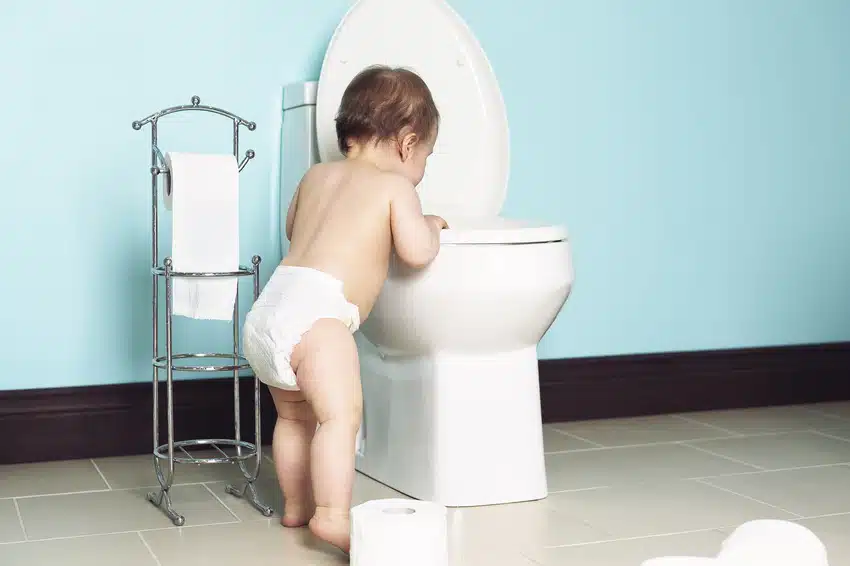
A septic system is an underground wastewater treatment center made from concrete, fiberglass, or polyethylene. Its function is to collect and treat the wastewater produced through basic household use, such as washing dishes, bathing, doing laundry, or flushing the toilets. Children are curious by nature, and they seem to gravitate to the toilet naturally. Small cars, magnetic letters, and even your car keys can end up getting flushed.
If locking your bathroom door to keep children out isn’t practical, toilet locks are an inexpensive solution that can help save big money in repair costs. There are several types to choose from; some even have decoy buttons that children can push with zero effect.
Flushable Wipes May Not Be So Flushable
Flushable wipes have become a highly debated and even controversial topic, but not for the reasons you might expect. Research is showing that wipes labeled as ‘flushable’ may lead to clogs, causing expensive repairs; however, personal hygiene is big business, so they’re probably not going anywhere anytime soon.
You might be asking, “how can we continue to use wipes without the risk of damage to our septic system?” That’s a great question. A good rule to help you remember: wipes should go into the garbage can and never into the porcelain ‘can.’
Below is a list of other items you should never flush down the toilet or pour into the drain:
- Cooking grease or oil
- Makeup removal wipes or other hygiene wipes, including baby wipes
- Cleaning & disinfecting wipes
- Photographic solutions
- Feminine hygiene products
- Cosmetics and cotton balls & swabs
- Hair
- Condoms
- Dental floss
- Diapers
- Cigarette butts
- Coffee grounds
- Cat litter
- Deceased pets: goldfish, hamsters, reptiles, etc.
- Paper towels
- Pharmaceuticals
- Household chemicals like gasoline, oil, pesticides, antifreeze, and paint or paint thinners.
If you’re ever in doubt as to whether or not something can be flushed down a toilet or poured into a drain, remember this: when in doubt, throw it out!
A Word About Washing Detergents
Doing laundry and washing dishes is a necessity, but using powdered detergents isn’t; in fact, powdered detergents, when not fully dissolved, have been shown to clog septic systems, causing backups and costly repairs. Septic specialists recommend using liquid detergents in dishwashers and washing machines.
Septic Inspections
Maintaining your septic system is a vital part of homeownership. A typical household gravity septic system should be inspected every three years and pumped every three to five years. Septic systems with electrical float switches, pumps, or mechanical components should be inspected once per year.
A failed septic system can pose serious health risks and harm to the environment. Some local health agencies allow you to inspect certain septic systems yourself and offer free training on how to perform them safely. Check with your local health department for more information and to find a list of septic professionals in your area.
Like other systems in your home, your septic system has a useful lifespan and can be expected to last anywhere from 15 to 30 years, depending on the type of system you have and how well you maintain it. By following the above tips, you’ll get the most out of your septic system and help to ensure its safe operation for years to come.
This article is intended to be a guide to caring for your septic system, so it isn’t exhaustive. If you do experience a clog or other septic problem that you can’t fix yourself with a drain snake or a plunger, call a septic professional right away.


